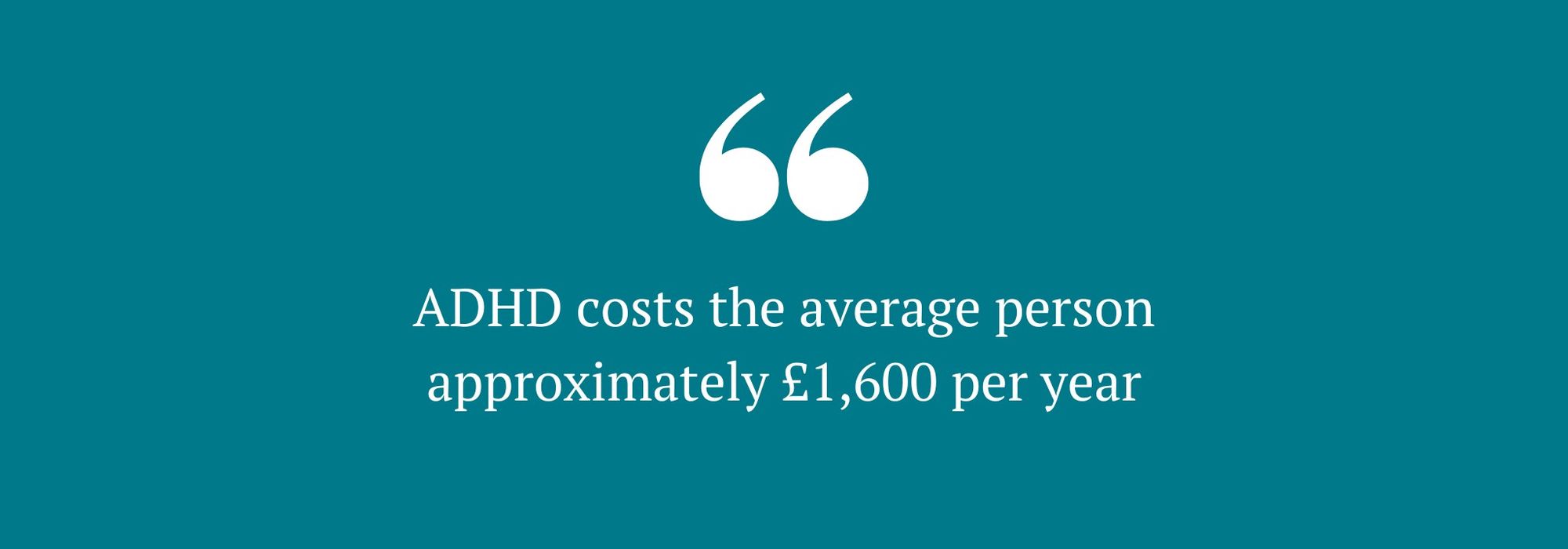How to take care of your financial health when you have ADHD
updated on Sep 4, 2023

Living with ADHD and struggling with your finances? You’re not alone
When I was finally diagnosed with attention deficit hyperactivity disorder (ADHD) at 23 years old, I breathed a huge sigh of relief. Legally, I’d only been an adult for five years, but the damage I’d already managed to inflict on my finances was palpable.
I’d let impulse spending wreak havoc as I struggled with my mental health after starting university. I was chasing dopamine by binge-eating most nights, and buying shots at the club to distract my busy brain. I kept mining further and further into my overdraft until there was nothing left.
In 2022, YouGov research commissioned by Monzo Bank found that ADHD costs the average person approximately £1,600 per year – something which has been termed the ‘ADHD Tax’. That considered, there’s little wonder I struggled – and I still do.
So, how can you take care of your financial health when you have ADHD? Here are a few actionable steps.
Remove the shame
First things first, try to undo the guilt. Self-shaming only makes things worse. So, rather than internally labelling any previous financial decisions you made that might have had repercussions as ‘bad’, try rebranding and viewing them as just ‘decisions.’ Then, there’s accountability, but there’s no ‘b’ word.
“Acknowledging the shame is the first step,” says ADHD accountant and money coach Tina Mathams. “And knowing it’s OK and it can be worked on. This might be to learn what your money story is, or explore why you might feel shame around your money. Getting to the cause is going to go a long way into helping overcome the shame.”
Set up direct debits
It might seem like an easy one, but setting up direct debits for as many bill payments as possible can go a long way, helping you to avoid any of those pesky late fees.
I’ve lost track of the amount of money I’ve lost over the years because I forgot to pay a bill on time. Having things automated can help to alleviate that stress.

Neurodiversity consultant and ADHD coach Hester Grainger recommends bank accounts with round-up settings, like Starling. “You can set aside spaces to save for different things,” Hester explains. “You can also add the round-up function to save without realising. You choose a percentage to put to one side, and every time you pay with your card, it gets transferred immediately to a specific space.”
Banks like Monzo also offer this service – I have a pot for my holiday accompanied by a fun image and lots of emojis, to encourage that special dopamine hit I get from adding to it. Gamification works wonders.
Wait before making purchases
Spotted a new jacket on ASOS and instantly obsessed? It can be all too tempting to add it straight to the basket and check out – and if you’re anything like me, you’ve heavily relied on buy now, pay later schemes.
I’ve had many a threatening email when I’ve forgotten to pay this money back, and that can be a stressful path to traverse.
Hester practises adding things to an online shopping basket and waiting 24 hours. “Sometimes, just adding it can be enough of a dopamine hit,” she explains.
Reach out for help
Money isn’t just numbers – it’s emotions. When I’ve overspent in the past, I’ve self-shamed and buried that.
Kate Moryoussef – a wellbeing and lifestyle coach for ADHD women, and host of ‘The ADHD Women’s Wellbeing Podcast’ – explains that ADHDers often struggle with dyscalculia, a difficulty in understanding mathematics that’s been likened to dyslexia for numbers.
“Reach out for help,” she suggests. “If accounting and bookkeeping is not your forte, look into apps.” Budgeting apps like Financielle explain financial concepts in an accessible, ADHD-compatible way.
Remember: it’s OK to communicate how you’re feeling about money. Keeping that burden to yourself can be huge – simply telling someone that you’re struggling with it will at least lessen the emotional turmoil.
By sharing, you’re not asking anyone to pay off your debts for you – you’re simply saying: “Hey, I’m struggling with this.” And that’s OK.

